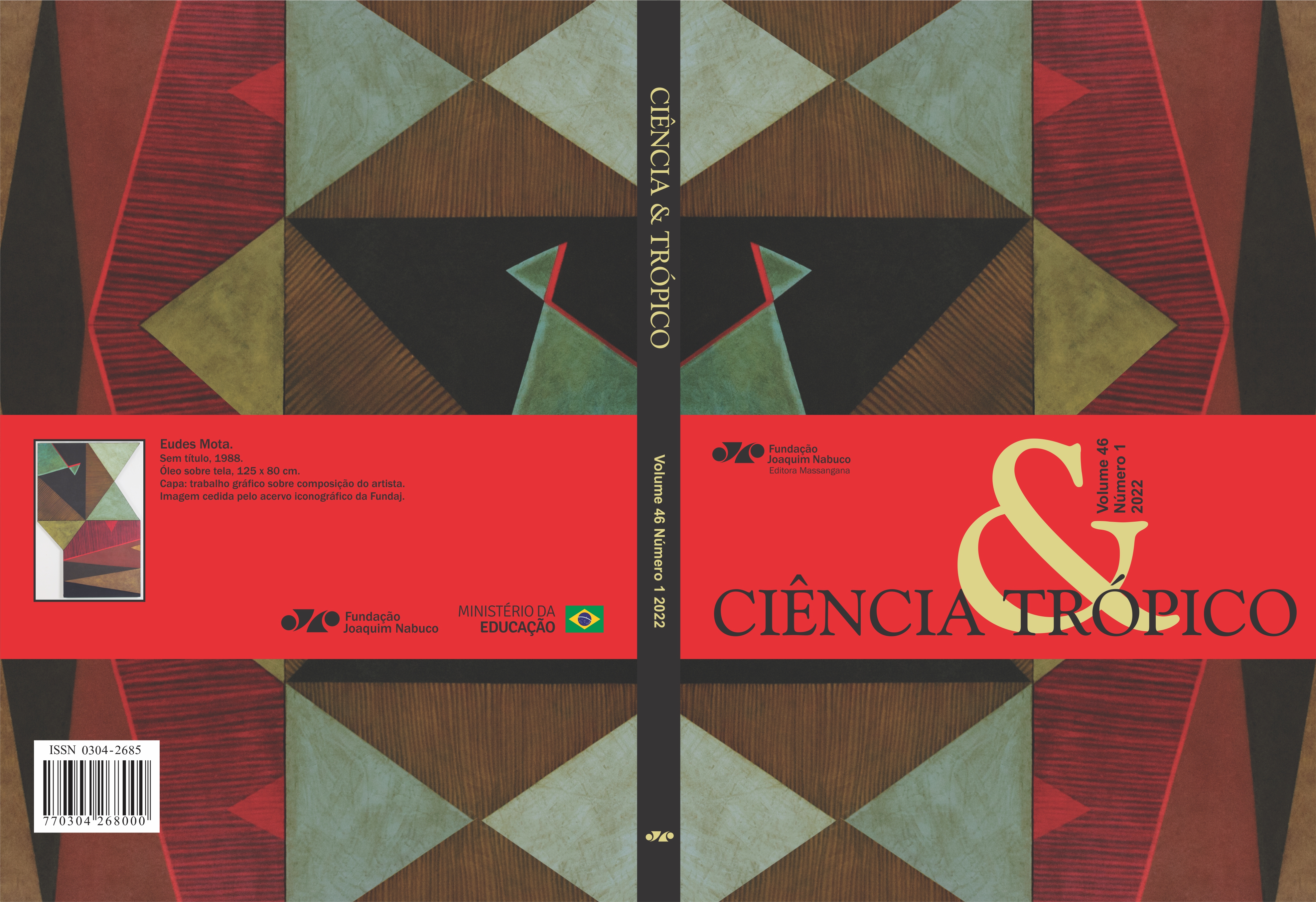Ghagall and the eyes of hope
towards the unknown friend and the exodus inside the quadrilateral
DOI:
https://doi.org/10.33148/cetropicov46n1(2022)art1Abstract
This paper investigates the formation of the cross-cultural landscape and the affective landscape that emerges from the analysis of Marc Chagall's work and the Brazilian context, in the Jewish formation of Brazil, reflecting the relations between the painter's autobiography and work, through the parallel between Vitebsk, the Russian village where Chagall was born in Belarus, and the life of Jewish converts in the northeastern villages, narrating the life of crypto-Jews and the expression of Cordel, armorial art and frevo. A critical analysis of modern art that takes into consideration the capacity that both Chagall and Brazilian artists and thinkers such as Mario de Andrade, Manuel Bandeira, Anita Malfatti, Cícero Dias, Villa-Lobos Ariano Suassuna, Capiba, Antônio Nóbrega and various anonymous and popular artists of poetry literature, and frevo had the ability to create avant-gardes from local origin and from the non-separation between popular and erudite art, revealing the Jewish exodus as an essential formation of Brazilian culture that unites on the same creative level the expression between deep Brazil, European modern art, and expressions such as contemporary Jewish music. The essay also reflects the engagement of a group of artists in the permanent politics of peace and integration among diverse cultures, an axis that permeates both Brazilian art and the course of Marc Chagall's life and work, both transforming tradition into avant-garde at the same time that his contemporaries were breaking traditions to create the avant-garde of the 20th century.
Keywords: Marc Chagall. Armorial Art. Exodus. Affective landscape. Transculturalism.
Downloads
Downloads
Published
How to Cite
Issue
Section
License
Copyright (c) 2022 Saulo di Tarso Begliomini de Araújo

This work is licensed under a Creative Commons Attribution 4.0 International License.


